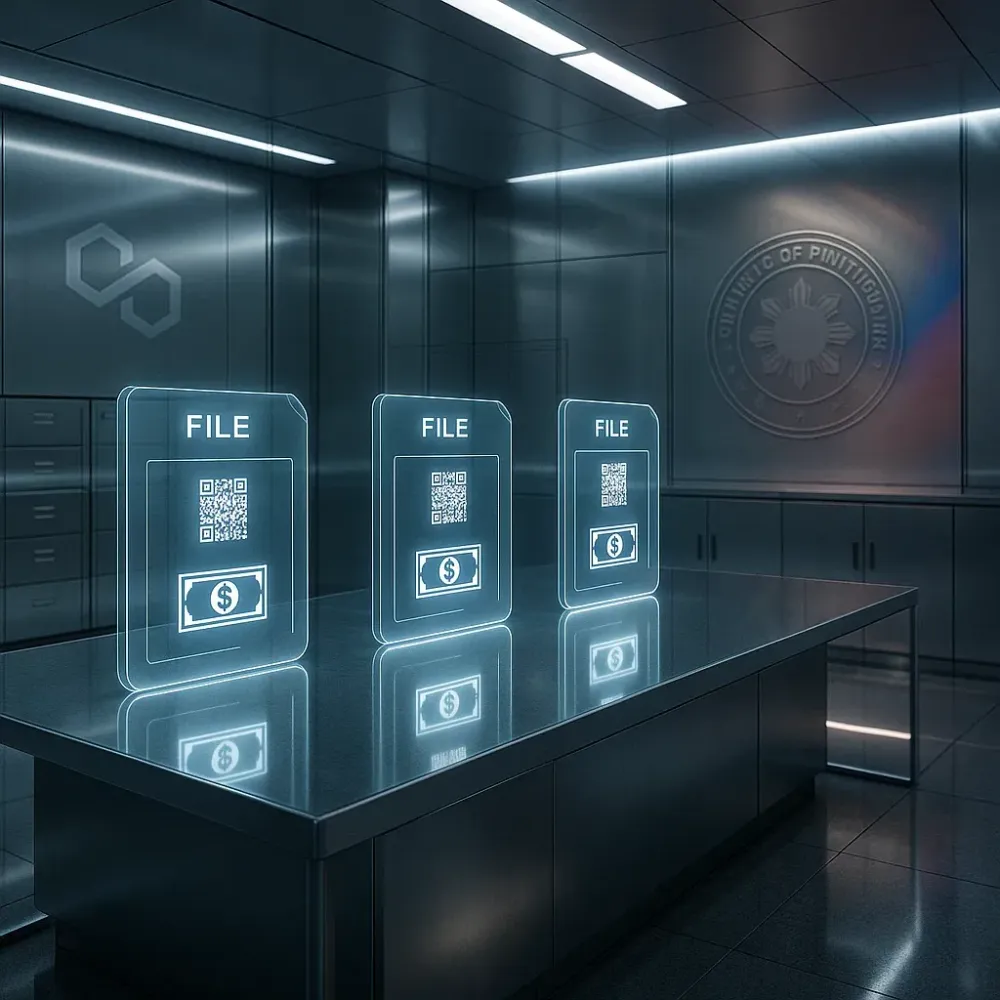Philippines Launches Blockchain System on Polygon for Government Records
Philippines Goes On-Chain: Government Docs Now Verified via Polygon
No more fakes. No more forged PDFs. The Filipino government just dropped its blockchain receipts — and they’re powered by Polygon.
🔍 Quick Take
- 🇵🇭 Philippines launches blockchain system to verify government documents
- 🛡️ Uses Polygon to store tamper-proof hashes of budget allocations
- 💸 Applies to SAROs and NCAs (core public fund records)
- 🔗 Built by Bayanichain, backed by the Department of Budget and Management
- ⚠️ Launch coincided with a Polygon Heimdall glitch — no major disruption
- 🌍 A new model for blockchain-backed public transparency in Asia
📜 Government Docs with Built-In Trust
Forget fake PDFs and shady screenshots — the Philippine government is now using Polygon to verify real public records.
The Department of Budget and Management (DBM) has rolled out a blockchain-based verification portal where users can scan a QR code or input a reference number to confirm whether critical financial docs — like SAROs (Special Allotment Release Orders) and NCAs (Notices of Cash Allocation) — are legit.
The data isn’t stored on-chain. Only the cryptographic hash goes on Polygon — a digital fingerprint that can’t be faked.
👀 Why They Did It
The government says it's responding to AI-driven document forgery, rising cybercrime, and a general erosion of trust. Blockchain, with its immutability and public accessibility, is the antidote.
“This is about accountability,” said DBM Undersecretary Maria Francesca Montes Del Rosario. “We want citizens to know their funds are tracked and traceable — cryptographically.”
The tech was developed by Bayanichain, a Philippine blockchain dev firm. And despite a temporary glitch in Polygon’s Heimdall consensus layer during the rollout, the launch went off without delay.
💥 Meanwhile… Polygon Glitched
As the Philippines hit go, Polygon was hit with a hiccup. Its Heimdall layer experienced issues that temporarily disabled block explorers and limited public visibility.
Key facts:
- Core block production (Bor layer) kept running
- Public interfaces and explorer tools briefly failed
- No government impact, as document hashes were already immutably stored
It’s a wake-up call: Governments betting on decentralized infra need fallback plans when third-party chains stutter.
🌐 Global Trend: Blockchain Bureaucracy
The Philippines isn’t alone. From South Korea’s education records to Argentina’s court filings, blockchain is creeping into state systems. The difference? The Philippines is one of the first to put public budget allocations — arguably the most sensitive — on-chain.
Why it matters:
- 💸 Budget mismanagement is a global issue
- 🔎 Blockchain enables radical transparency
- 🛡️ It makes faking documents near-impossible
TL;DR
- 🇵🇭 Philippines launched a blockchain verification system for budget documents
- 🔐 Uses Polygon to store cryptographic hashes, not the docs themselves
- 🧠 Built to combat forgery and promote transparency in public spending
- 🧱 Built by local devs, backed by DBM — launched despite a Polygon glitch
- 🌍 Early signal of how decentralized tech can harden public infrastructure

Recent News
All Time High • Live
Have questions or want to collaborate? Reach us at: [email protected]










